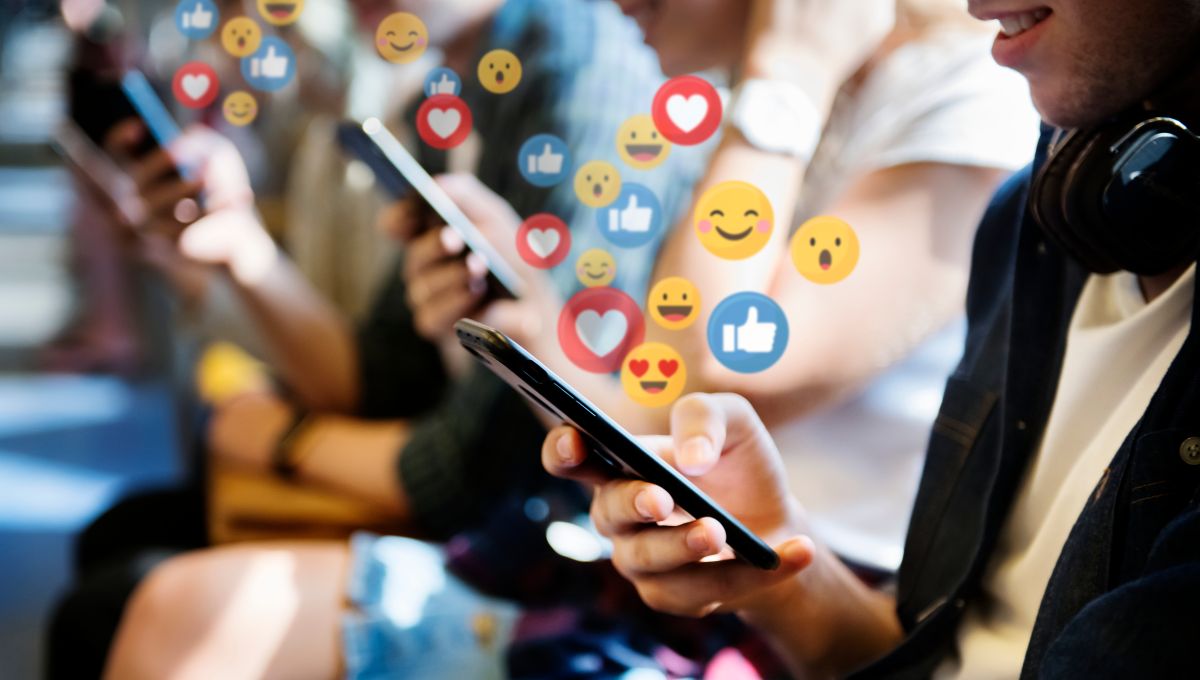“Virtually all young people in the United States use social networks, however, we do not have enough evidence to ensure that they are safe enough for them”, is one of the conclusions of the notice published by the American Surgeon General, Dr. Vivek H. Murthy. Social networks have entered the lives of all people, but, according to the document, in the young population without sufficient psychological maturity, they can have a profound impact on mental health and general well-being, with benefits and harms.
Social networks are an important part of the lives of young people, applications such as Instagram, TikTok, YouTube, WhatsApp and others, may be essential for them. The notice from the health department sums it up like this:
- 95% of young people between the ages of 13 and 17 use some social network; a third wear it all day.
- Adolescents who use social networks for more than 3 hours a day double their risk of having poor mental health, with symptoms of depression and anxiety. In 2021, the average use in children between the ages of 13 and 17 was 3.5 hours.
- In relation to the impact on the body image of young people between the ages of 13 and 17, half said that it made them feel worse, and the rest were divided between that it does not affect them or that it makes them feel better.
Everything is bad?
It is very tempting to think that social networks have only disadvantages, but that would not be correct. As the document points out, there are many benefits that have been demonstrated in research:
- For those groups that in ‘real life’ feel marginalized (due to their ethnicity, sexual interest, gender, among others), social networks have been places of opportunity to interact and have support.
- In an investigation, it was reported that in a group of African-American adolescents, more than half felt more accepted in their lives, 7 out of 10 mention that they have someone who supports them in difficult moments and that they can have a place to show their creative side.
- 80% of youth report feeling more connected to what is happening in their friends’ lives.
It is key to recognize the social benefit it has for this adolescent generation. This makes it much easier for them to be able to build an identity, create spaces for self-expression, and have a greater range to maintain and make friends. This is possible if we have adequate digital control.
The complex side
In the presentation of his book, ‘Morbo mentis: Mental illness through 11 true stories’, the psychiatrist and former director of the Psychiatry service of the Hospital de Sant Pau in Barcelona, Dr. Enric Álvarez, mentions that the pandemic is it extended the need for social contact and it was only possible to achieve it through social networks.
The president of the American Academy of Family Physicians, Dr. Tochi Iroku-Malize, notes in his perspective on the published notice that, although “Social media can be a powerful tool for connection, but it can lead to heightened feelings of depression and anxiety”; For his part, the executive director of the American Psychological Association, Dr. Arthur Evans, Jr, points out that “psychological research shows that the maturation of each young person proceeds at different speeds, with some being more vulnerable than others to the content and characteristics of social networks”.
The scope that has been detected in social networks is summarized in two points:
- When the brain is forming, which occurs mainly in childhood and early adolescence, social pressure, the opinions of others, and comparisons with others can have a huge effect on personal self-worth.
- It is possible that, using social networks without a guide, the processes of emotional learning and impulse control, may be impaired. This makes adolescents focus more than is recommended on sensitivity to social rewards and punishments (in that quest to be ‘viral’, have ‘likes’, among others).
The importance of family work
Although it has not been possible to fully understand the long-term effect of social networks, which as we know them have been around for a little over 10 years, it must be remembered that social networks are created to keep the user as long as possible. Hence:
- It has been seen that they cause sleep problems, due to use until late at night.
- It affects learning the concept of self control.
- Relationships have been seen with increased attention deficit and hyperactivity.
Is all lost?
No, but it is key to take action on the matter. For example:
- Make a family plan for the use of social networks: Learn to set healthy limits on the use at home. This is achieved by talking and reaching agreements. Discuss with the children the benefits and risks of using social networks.
- Create a zone and time at home that is technology-free and encourage in-person friendships: Demonstrate with facts what we ask of our children.
- Report all abuse, exploitation or cyberbullying: If your child suffers some type of harassment through social networks or video games, you should support him and believe without judgment, because perhaps he did not understand what was happening. You must teach children to always report it.
- Talk to other parents in order to establish shared rules and practices: In this way, children can see that they are not being ‘punished’, but rather that social media is being used correctly.
About Vida y Salud: This content has been created by the editorial team of VidaySalud.com, a space founded more than ten years ago under the editorial direction of Dr. Aliza Lifshitz with the mission of informing, educating, and raising awareness about issues of health and wellness. A unique resource for the Hispanic community in the United States, Vida y Salud includes the digital platform VidaySalud.com and Vida y Salud TV, which airs regularly on the public television network HITN.
